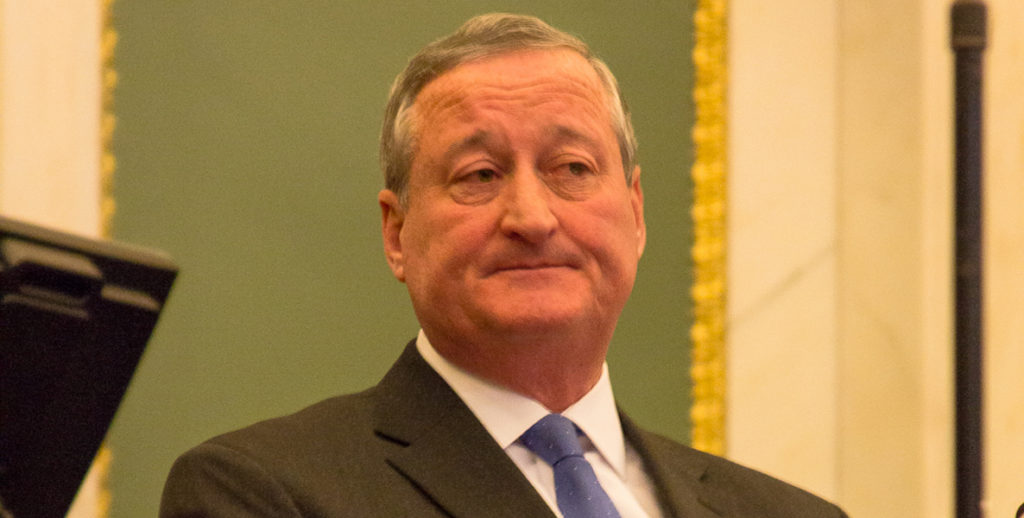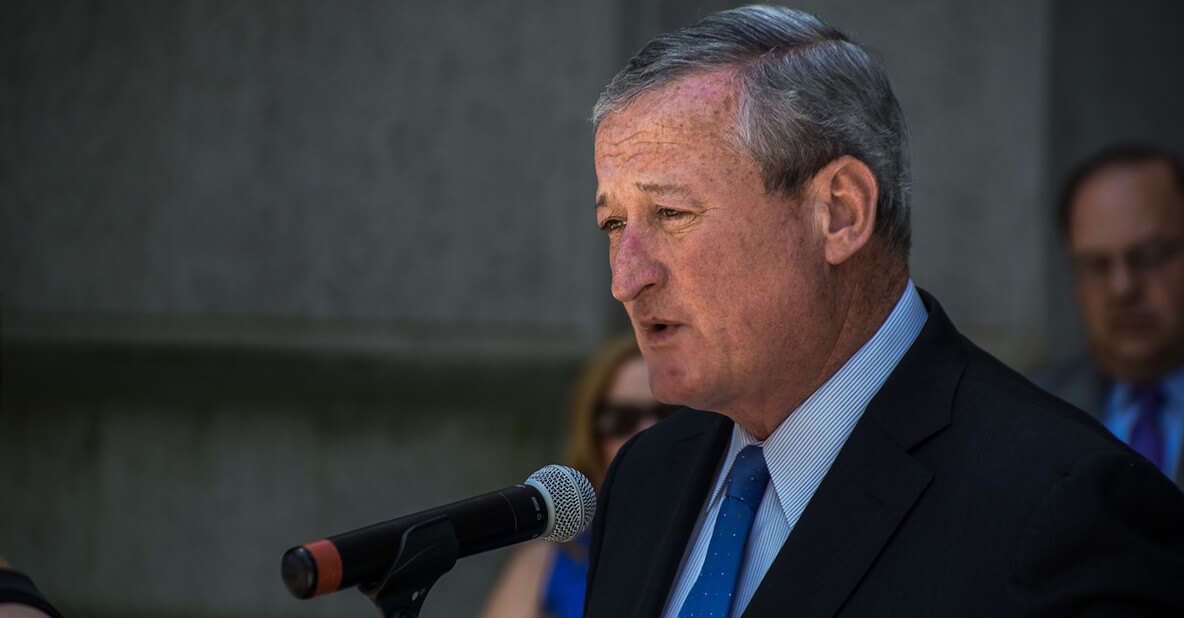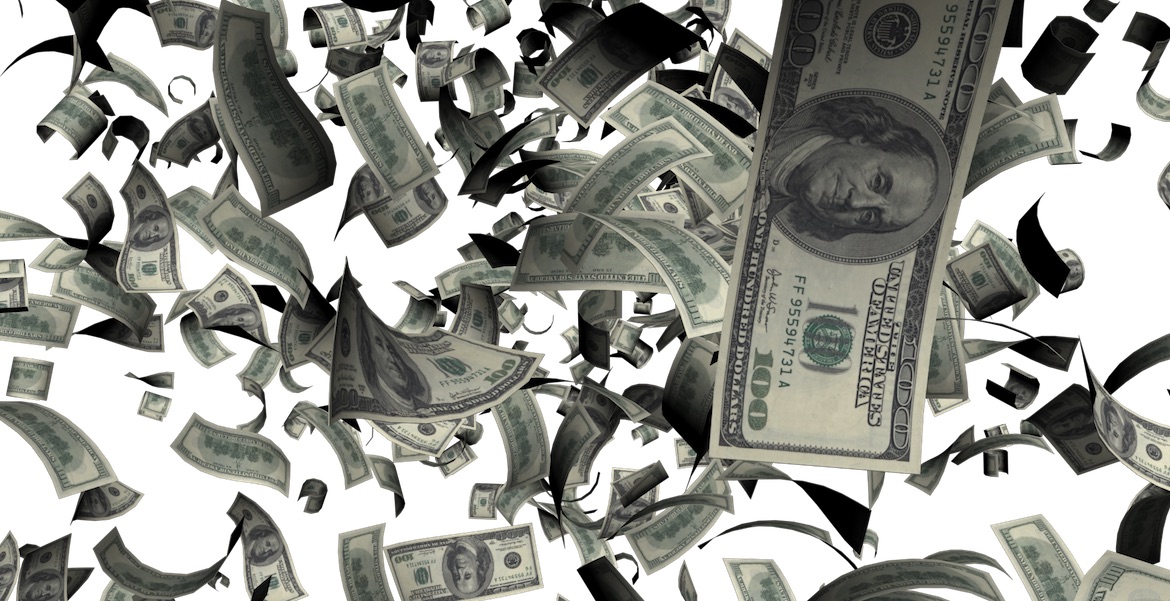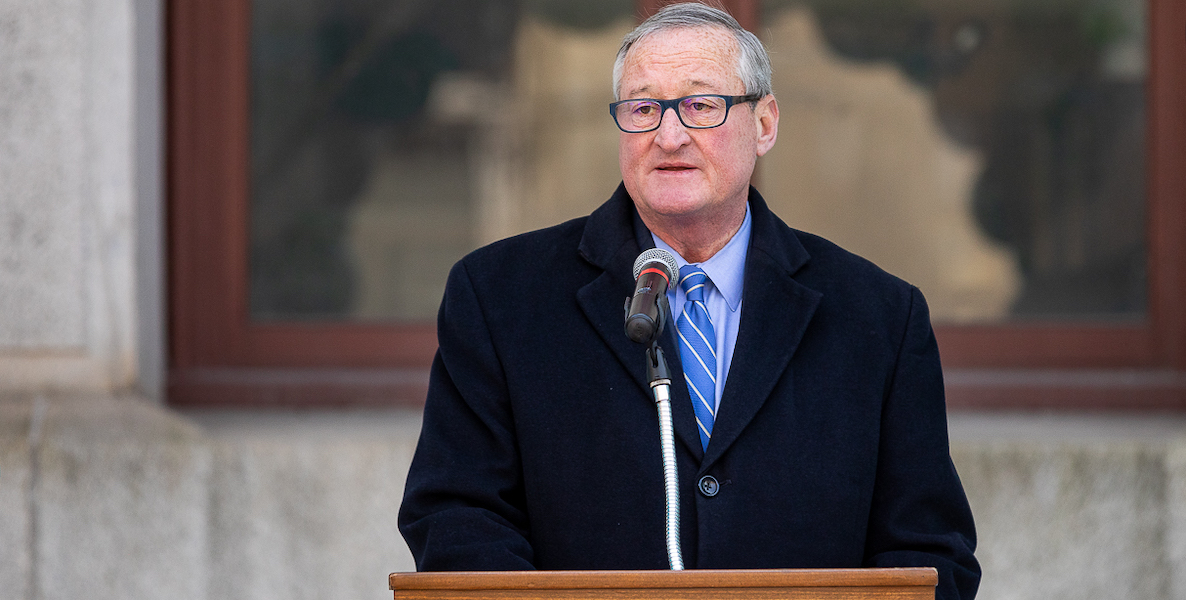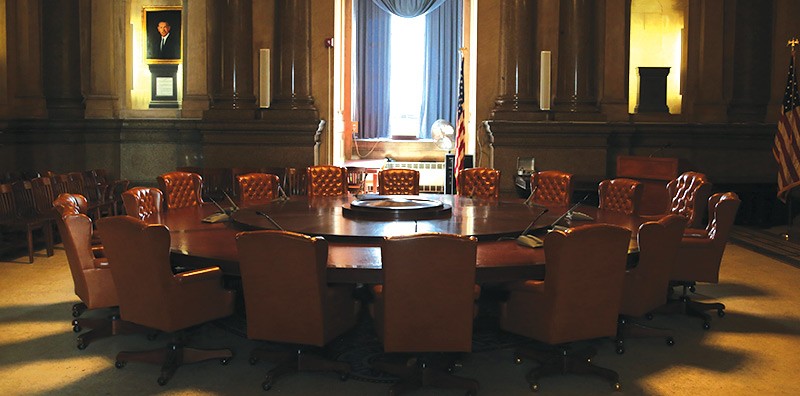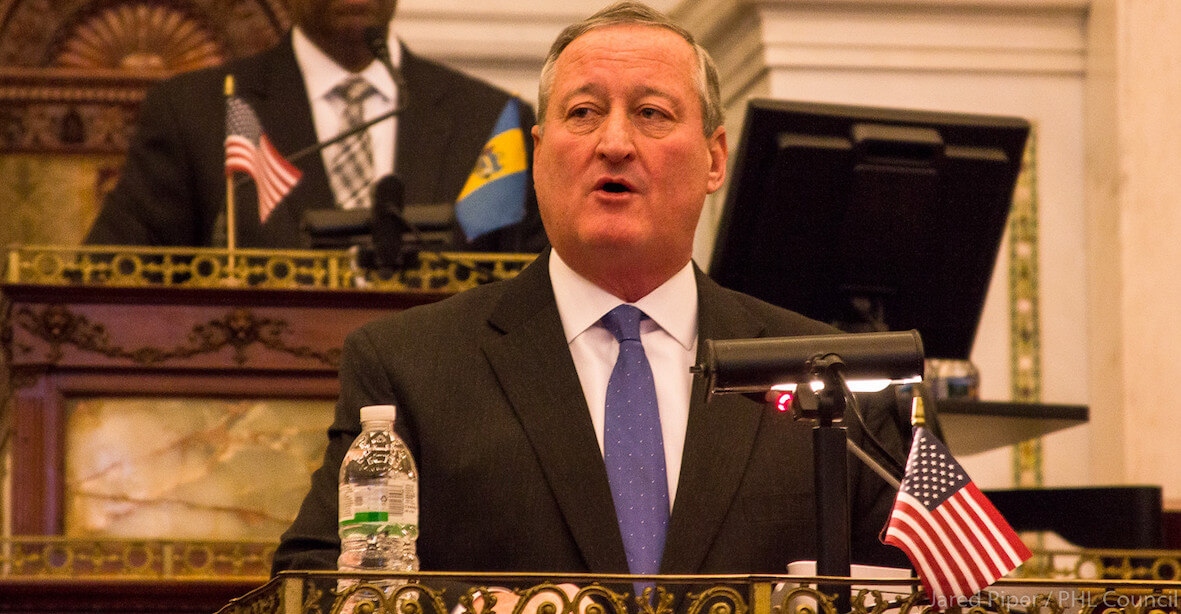Skirmishes between the press and public officials have long been a natural part of the Democratic process, which is why, when tensions bubble to the surface, the electorate tends to react with shoulder-shrugging: It’s just inside baseball, the thinking goes.
But sometimes when press and public official square off there really are high stakes. That was the case earlier this year when the Trump administration, implausibly citing “security concerns,” revoked the press passes of members of the White House press corps—including CNN’s Jim Acosta—who either asked tough questions or had been critical of the Supreme Leader at 1600 Pennsylvania Avenue. It was an autocratic, anti-American response aimed to censor and stifle discourse.
That tendency reared its head locally last week, when the Kenney administration announced a new policy forbidding city officials and staffers from speaking to Philadelphia magazine reporters without prior approval from the mayor’s chief of staff—after the magazine had published a story Kenney didn’t like.
Around children, Kenney’s humanity shines, and his playfulness—his love—is genuine, as is his commitment to improving their education. Problem is, if you disagree with him on how to go about doing that, you run the risk of unleashing his inner Trump.
Now, let me say that few have been more critical of Kenney than yours truly, but I’ve been mightily impressed by the professionalism and openness of his administration in dealing with critical media. I don’t know the nature of Kenney’s beef with Philly Mag beyond press reports, but it really doesn’t matter: In a representative democracy, a big boy elected leader is obliged to not only tolerate, but cooperate with press inquiries—even if they don’t like the final product. Clearly, in this case, it’s hard to conclude anything other than that one of the nation’s leading critics of Donald Trump seems to be motivated by the same punitive instinct as his nemesis.
The magazine and the Inquirer have both referenced the apparent hypocrisy of Kenney adopting such a Trump-like policy. But the similarities between our mayor and the president don’t begin and end there. In actuality, though the mayor and the president may vehemently disagree when it comes to policy, the record is littered with instances wherein Kenney would, metaphorically speaking, appear to be orange-haired and short-fingered. Let us count the ways:
Both are fiscally irresponsible
By now, the verdict is in: Jim Kenney is a spendaholic. Since taking office, the Mayor has increased spending by some 25 percent, the largest three-year surge in city history. Never mind that there is little to point to as a return on that investment, other than an exploding murder rate, middling economic growth (of comparatively low-paying jobs), and a deepening poverty rate.
![]() “We could say the government spends like drunken sailors,” Ronald Reagan once said, “but that would be unfair to drunken sailors, because the sailors are spending their own money.”
“We could say the government spends like drunken sailors,” Ronald Reagan once said, “but that would be unfair to drunken sailors, because the sailors are spending their own money.”
The ways in which the Kenney administration mishandles taxpayer money are striking and myriad. You know the litany: The comical search for the once-missing $33 million; the $924 million in accounting errors; the $50 million boondoggle over a new police headquarters; the overshooting of overtime costs by another $50 million; the nearly $500 million in increased spending tied up in city worker salaries, benefits and labor costs.
Perhaps, in his frenzied checkbook writing, Kenney is taking a cue from his unlikely doppelgänger. Trump is the most irresponsible spender in the history of the American presidency; his $3.7 trillion budget is an all-time record, and—thanks to the 2017 tax-cut that, contrary to Trump’s rhetoric, did not “pay for itself”—we’re headed for a $1 trillion deficit by the end of the fiscal year. But maybe we shouldn’t be surprised. As a developer with numerous bankruptcies on his resume, Trump once boasted that he was “the king of debt.”
Both tax the base
When Jim Kenney ran for Mayor, his signature policy proposals—the worthy pre-K and Rebuild programs—were to be paid for by something called zero-based budgeting, innovative accounting measures that increase efficiency and find resources in already existing finances.
Alas, that required hard budgeting choices, so—natch—it fell by the wayside when it came time to govern. Instead, Kenney passed, and continues to laud as his signature achievement, a tax of sugary beverages that has proven to be regressive. That is: It disproportionately affects lower-income and working class citizens, voters Kenney has long considered his base.
You can judge political character by the amount of times a public official tells a deep-pocketed supporter “no.” Neither Kenney nor Trump have exhibited that type of courage.
Maybe that’s where Trump got his own “tax the base” bright idea. The political left won’t concede that Trump is right to take on China over trade, but the smart way to do that is to mobilize an army of trading partners and be strategic about who bears the burden of trade confrontations. Instead, Trump’s unilateral imposition of tariffs amount to nothing but tax increases on American farmers, steel workers and consumers in general.
Both are hostage to special interests
You can judge political character by the amount of times a public official tells a deep-pocketed supporter “no.” Neither Kenney nor Trump have exhibited that type of courage.
![]() It was telling, wasn’t it, when, after one phone call from the head of the NRA, tough guy Trump made his second such about-face on the issue of background checks? Kind of reminiscent of the way Kenney always seems to fall in line with the desires of organized labor. What’s the one tax our local taxer-in-chief has opposed? The one on new construction, which was—surprise, surprise—also opposed by the Building Trades and indicted labor leader and Kenney ally John Dougherty. To be clear—I agree with Kenney’s opposition to this particular tax. But it is telling, isn’t it, that when labor says jump, our mayor seems to respond by asking for a trampoline, as evidenced by all those generous new contracts the city has doled out?
It was telling, wasn’t it, when, after one phone call from the head of the NRA, tough guy Trump made his second such about-face on the issue of background checks? Kind of reminiscent of the way Kenney always seems to fall in line with the desires of organized labor. What’s the one tax our local taxer-in-chief has opposed? The one on new construction, which was—surprise, surprise—also opposed by the Building Trades and indicted labor leader and Kenney ally John Dougherty. To be clear—I agree with Kenney’s opposition to this particular tax. But it is telling, isn’t it, that when labor says jump, our mayor seems to respond by asking for a trampoline, as evidenced by all those generous new contracts the city has doled out?
Both make personal attacks
It’s well-documented that Trump, rather than engage ideas, instead attacks the motivations of his opponents, often in the most personal of ways. Well, Kenney might not be quite so vicious, but he shares the same instinct.
When grocer Jeff Brown, with all his progressive bona fides, criticized the regressive soda tax, Kenney didn’t answer with reasoned debate. Trump-like, he instead attacked Brown, painting him as rich and self-interested, questioning his motives and veracity.
Or how about when a Temple University official attributed the school’s increase in boarding costs to what he identified as a $400,000 per semester cost due to Kenney’s tax increases? Temple wasn’t reacting to a new economic reality, the Mayor’s office implied; it was being greedy. The mayor’s spokeswoman went so far as to point out that the school was hoping to build an on-campus football stadium—something for which they’d need the mayor’s help.
I don’t know the nature of Kenney’s beef with Philly Mag beyond press reports, but it really doesn’t matter: In a representative democracy, a big boy elected leader is obliged to not only tolerate, but cooperate with press inquiries—even if they don’t like the final product.
It was knee-jerk, Trump-like bullying, and it worked: Within hours, Temple released a statement saying they’d take another look at their calculations, essentially backing down. It reminded me of when, prior to the passage of the soda tax, Kenney showed up to a meeting with soda bottler honcho Harold Honickman, who had labor leader John Dougherty by his side. Honickman might have been forgiven had he inferred from Johnny Doc’s presence an ominous message: Nice little soda bottling operation you have here, it would be a shame if something were to happen to it. The Kenney playbook, it seems—not unlike the president’s—is not to find consensus, but to hunker down, attack, bully, and spin.
Both are allergic to fun
Mayor Kenney will tell absolute strangers how much he can’t stand his job. Everyone always wants something from you, he’ll complain, and someone is always angry with you over something. He projects a frowning, stern countenance, when leadership demands happy warriorship.
![]() This, also, conjures Trump, for when have you ever seen the guy engage in open-hearted laughter? The guy even hates dogs. Like our politics—not coincidentally—our elected leadership has gone dark and resentful.
This, also, conjures Trump, for when have you ever seen the guy engage in open-hearted laughter? The guy even hates dogs. Like our politics—not coincidentally—our elected leadership has gone dark and resentful.
As in all these cases, there is, of course, a difference between Kenney and Trump, but it’s more often than not one of degree and not of principle. Around children, for example, Kenney’s humanity shines, and it is his saving grace. He lights up, and his playfulness—his love—is genuine, as is his commitment to improving their education. Problem is, if you disagree with him on how to go about doing that, you run the risk of unleashing his inner Trump.
Header photo by Jared Piper/PHLCouncil

